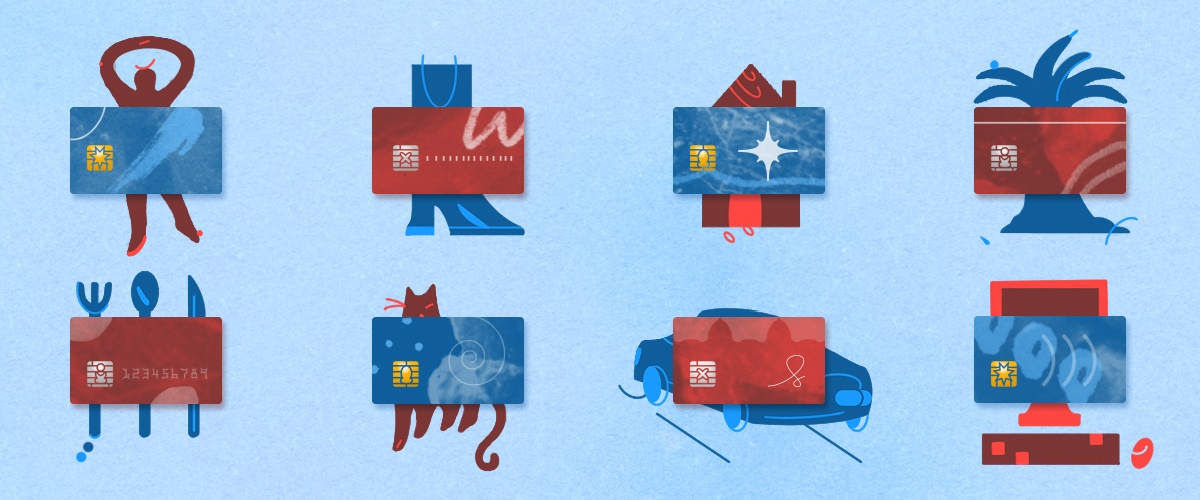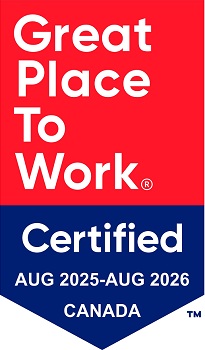
Written by Frankie Barnet
Three inches long with a thick stripe down the back like a bad dye job, they’re named after precious metals and have access to so many of our secrets. How many bags of Skittles did you buy last week? Platinum Plus could tell you in a heartbeat. How about those new shoes? Aventura Gold definitely knows you can’t afford them.
Our credit cards—or credit scores—determine our ability to rent or buy a home, purchase a car, or acquire more credit, leading to more opportunities to prove or disprove our worth as financial human beings. So why not escape the cycle completely, emulate what we’ve seen so many times in the movies, and just cut the darn thing to pieces? After all, it's just a piece of plastic. We are flesh and blood!
Fiscal Trauma
Many of us were raised on horror stories about credit card debt. In fact, according to a recent Bank of America report, both Gen Z and Millennials prefer using cash to make their purchases, viewing credit cards as too dangerous.1 You might even have a nightmare of your own, that semester of university when your girlfriend broke up with you and it felt like Momentum Infinite was the only friend you had, until it came time to pay the bill.
But chances are you’re not nineteen anymore and have the wherewithal to grant yourself some financial responsibility. While the dangers of credit card debt are important to be aware of, when used correctly, there’s no reason why having a credit card has to feel like a tightrope walk. In fact, for many young people, switching to plastic is an important first step to laying a foundation for future financial security.
Make Your Money Work for You
When you use your debit card for a purchase, the transaction is simple. Funds from your bank account are transferred electronically to the business that sold you their product. As long as you’re out of overdraft, the transaction ends there.
Using a credit card, however, makes the secret life of your money a little more interesting. You aren’t charged anything in the moment and receive a bill at the end of the month. And, depending on your purchase, you earn rewards (generally either points or cash back) while also building your credit.
Laying a Foundation
Suddenly buying a rotisserie chicken three times a week doesn’t feel so sad when you know that—as long as you pay your bills on time—you’re actively laying the foundation for big purchases in your future. Even if the thought of negotiating interior finishes on a minivan makes you queasy today, it makes sense to start building your credit now, especially when you’re probably going to buy those rotisserie chickens anyways.
Earning your Revenge
Young people’s discomfort towards credit cards is well-founded. We’ve grown up watching various financial catastrophes, rising income inequality, and less than encouraging job markets. And there’s no doubt that overspending and failure to make payments on a credit card carries serious consequences. With interest rates as high as 22%, credit card companies have much to gain from their clients managing their product badly. But when your credit card is managed well, it's you who makes the profit.
We can help
Lawyers Financial offers free financial planning to law students, lawyers and other members of Canada’s legal community. Get practical advice about investing, managing debt, and making a budget that leaves room for living. Book a free 30-minute financial planning session now.
Sign up for more
Sign up for our newsletter to stay updated and receive upcoming blogs and similar content, tailored to law students and new lawyers, straight to your inbox.
Frankie Barnet lives in Montreal and is the author of An Indoor Kind of Girl.
1 The I: “Credit cards: Why young people are turned off by paying on plastic,” January 2021.


